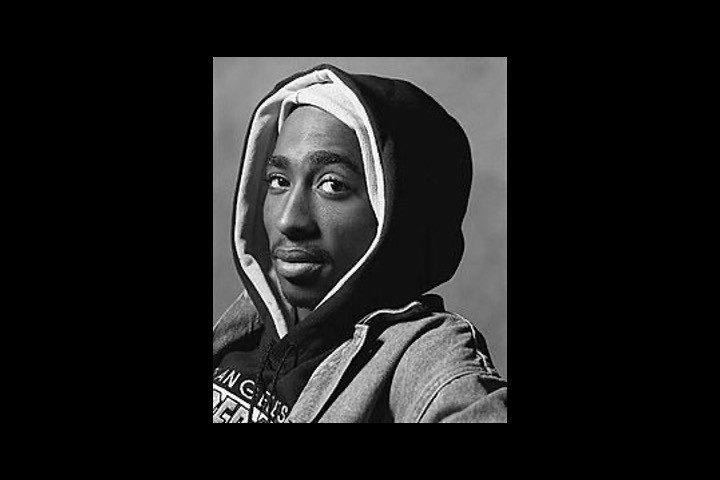
Tupac Shakur is known by some as having been a criminal rapper who was murdered in 1996, at age 25, in what reportedly was gangland retaliation. But now he can be known as something else:
A “literary” figure whose work is taught in school.
This came to light after a father reported that his seventh-grade son’s class was asked to read one of Shakur’s poems and evaluate its meaning. The unnamed school is in Dallas-Fort Worth, Texas, reports Newsweek, and Shakur composed the poem, “The Rose that Grew from Concrete,” when he was 19.
The father, Alex Preston, shared a screenshot of the school assignment on Reddit and said he was “surprised” and “excited” to learn about it. He has a lot of company, too.
Newsweek related the comments of Reddit users thrilled that Shakur had graduated to the classroom. For example, “Salamanderhead, commented: ‘this is cool. Tupac has a lot of great songs and lyrics.’”
Yes, I believe that’s how Alexander the Great described being tutored by Aristotle — “This is cool.”
When MSN.com posted the Newsweek piece, many reactions were similar. “One of the best lyricists/poets of our time,” wrote respondent Joe Cramer, in what was the top-rated comment. If true, one has to ask: How does our “time” rank in terms of lyricism and poetry? (Actually, it’s pretty rank.)
For the record, here’s Shakur’s rose poem:
Did you hear about the rose that grew
from a crack in the concrete?
Proving nature’s laws wrong it
learned to walk with out having feet.
Funny it seems, but by keeping its dreams,
it learned to breathe fresh air.
Long live the rose that grew from concrete
when no one else ever cared.
It’s apparently a metaphor for his “struggles,” and the message itself isn’t negative. But the writing is low-grade, poorly punctuated, and simplistic. Is this what we should present to children, when it will serve as an example of proper English composition?
Speaking of examples, father Preston expressed his surprise at the assignment and told Newsweek, “Tupac was everywhere when I was in high school and while I was a huge fan, my parents/teachers/etc were not so thrilled with the example they believed him to be setting.”
For good reason. While there’s no questioning Shakur’s commercial success — considered one of history’s “most influential rappers,” he sold more than 75 million records worldwide — he was no role model (unless one aspires to be a Crip or a Blood). Born Lesane Parish Crooks in NYC, at age 1 he was renamed Tupac Amaru Shakur, after Túpac Amaru II, an anti-Spanish revolutionary executed in Peru in 1781. This is no surprise given that Shakur’s mother and biological father had been active Black Panther Party figures, while other family members belonged to the party’s Black Liberation Army and were imprisoned for committing serious crimes.
Of course, Shakur didn’t escape these bad influences. He was sentenced to 4 1/2 years imprisonment for sexually abusing a fan and, as mentioned, died a violent death due to gangland involvement. This raises a question: Is his work so impressive that it’s worth risking his elevation to role-model status?
Preston also told Newsweek that “he shared a picture of the homework assignment as he felt it was ‘something my teenage self would never have predicted,’” the periodical further relates. “Flash forward a quarter-century and his lyrics are now being taught in school,” he later added.
Yet it was entirely predictable, as it’s part of a phenomenon whereby our recent history rhymes more than Shakur’s poems. This gets at the deeper problem, too.
Years ago, a wonderful editor who runs a magnificent site and who’d once been an Ivy League professor explained well how The Catcher in the Rye, which I’d expressed was overrated, began infusing American curricula. The book was published around the time he was in high school, he said, and was all the rage with his peers. “We all wanted to be Holden Caulfield,” the editor stated. So when they grew up (or older, at least), those who became educators brought this “cool” work into their teaching.
Another example: Preston, trying to add perspective, told Newsweek, “I recall I had English teachers who would pull from Bob Dylan for their classes. I would guess my son’s English teacher is simply pulling from her own personal experiences.”
But here’s even more perspective: This is what happens when one has little more than “personal experiences” due to historical ignorance, when a person extols fallacies because they’re fashions, when he’s a creature of his age and not the ageless.
Speaking of which, Newsweek related one Reddit user as commenting, “Ever since high school English I’ve wondered why there aren’t more modern and relevant artwork that is exposed and analyzed.” This perfectly reflects our time’s prevailing relativistic world view, which denies the objective. Ignored is that there are no new sins and no new truths — and that nothing is as relevant as Truth.
In fact, it’s the only thing truly relevant because it’s all that forever endures; fashions quickly pass away. This is why school curricula shouldn’t be based on what the generation now holding the reins thought was cool 20 years ago, but based on virtue, that set of objectively good moral habits.
If we love the children this is what we’ll do, too. Giving them what we or they think is “cool” is as giving them junk food every meal simply because it tastes good. We wouldn’t do this, as we care about their bodies too much. Do we care any less about their souls?




